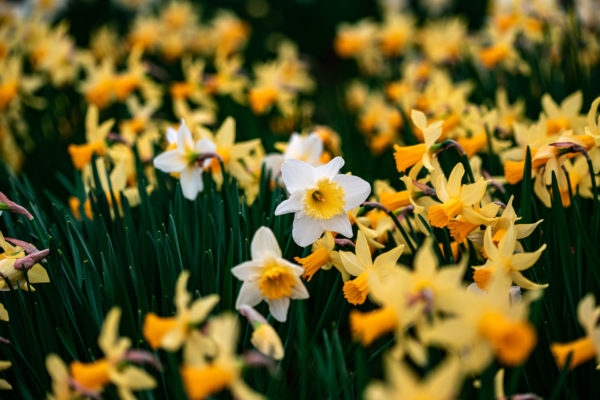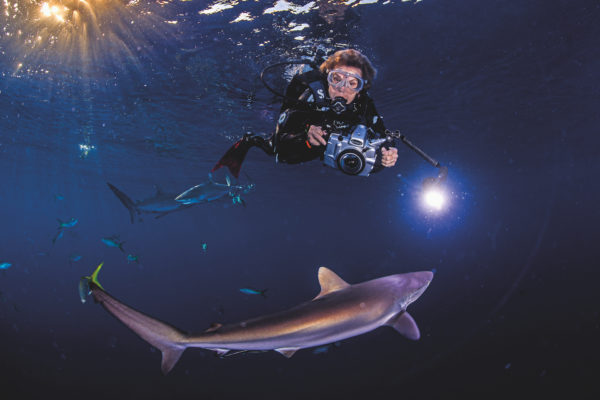My Little Green Book: The Founders of Notpla, An Ingenious Sustainable Packaging Brand
By
2 years ago
Can seaweed save the world?
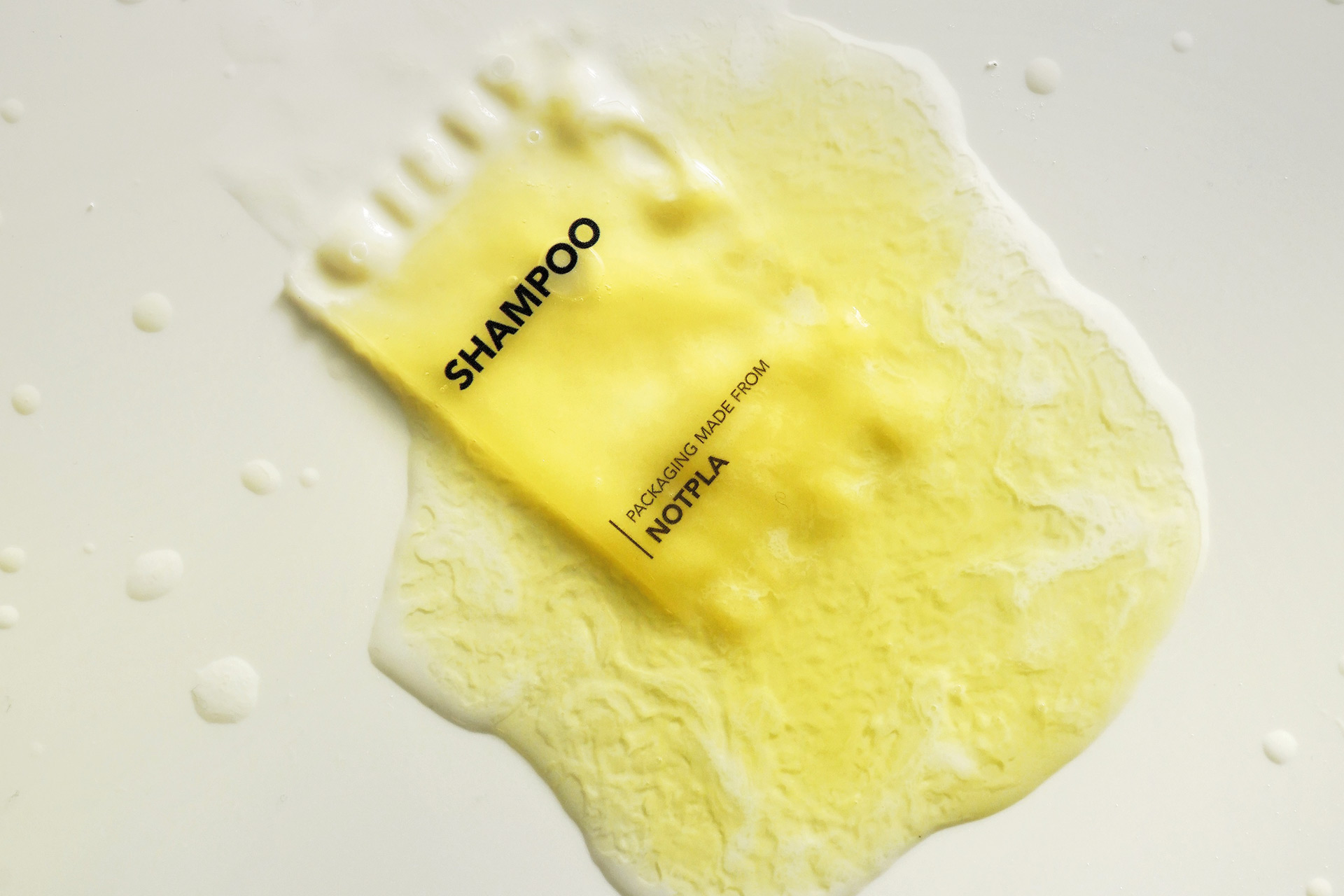
Lisa Grainger meets the award-winning, plastic-free seaweed pioneers behind Notpla.
My Little Green Book: The Founders of Notpla, An Ingenious Sustainable Packaging Brand
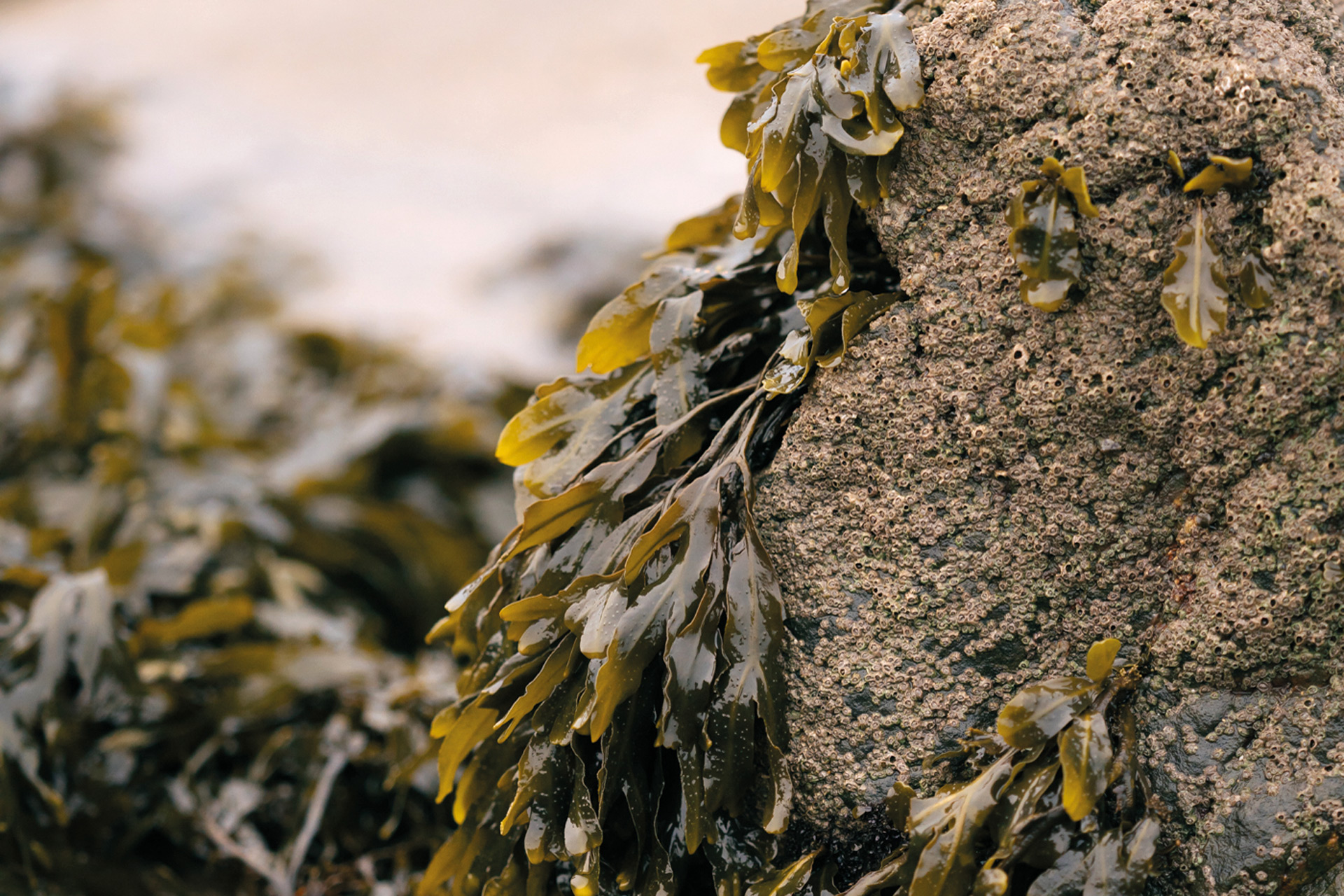
Image credit: Sam Scales
How you view seaweed seems to depend on where you are from. For most people in the UK, it’s the stuff that tickles your ankles as you swim. But for Alaskans, the plant is an important source of food: a rare bit of greenery in an icy world. For Japanese, it’s an essential ingredient in soup stocks. And for toothpaste manufacturers, it’s the ingredient that gives their minty pastes a smooth consistency.
When the French engineer Pierre Paslier started to experiment with seaweed, he wasn’t planning on using it for consumption. He had previously worked as a packaging engineer for L’Oréal, and was horrified by the tons of plastic the industry was churning out for its face creams. Wanting to ‘come up with ideas that are more innovative and positive, not creators of more problems,’ he signed up for a masters in Innovation Design Engineering at Imperial College London, where he met his Notpla co-founder, Rodrigo García González.
Both men were obsessed with the way plastic was polluting our world. Wanting to find an alternative, they started to look at the way an orange skin packaged a juicy fruit, the composition of a banana skin. When they investigated seaweed, they realised not only did they have a plant that could be dried, extracted and reformulated in a way that was edible, but an ingredient that could perhaps be made into a biodegradable ‘skin’.
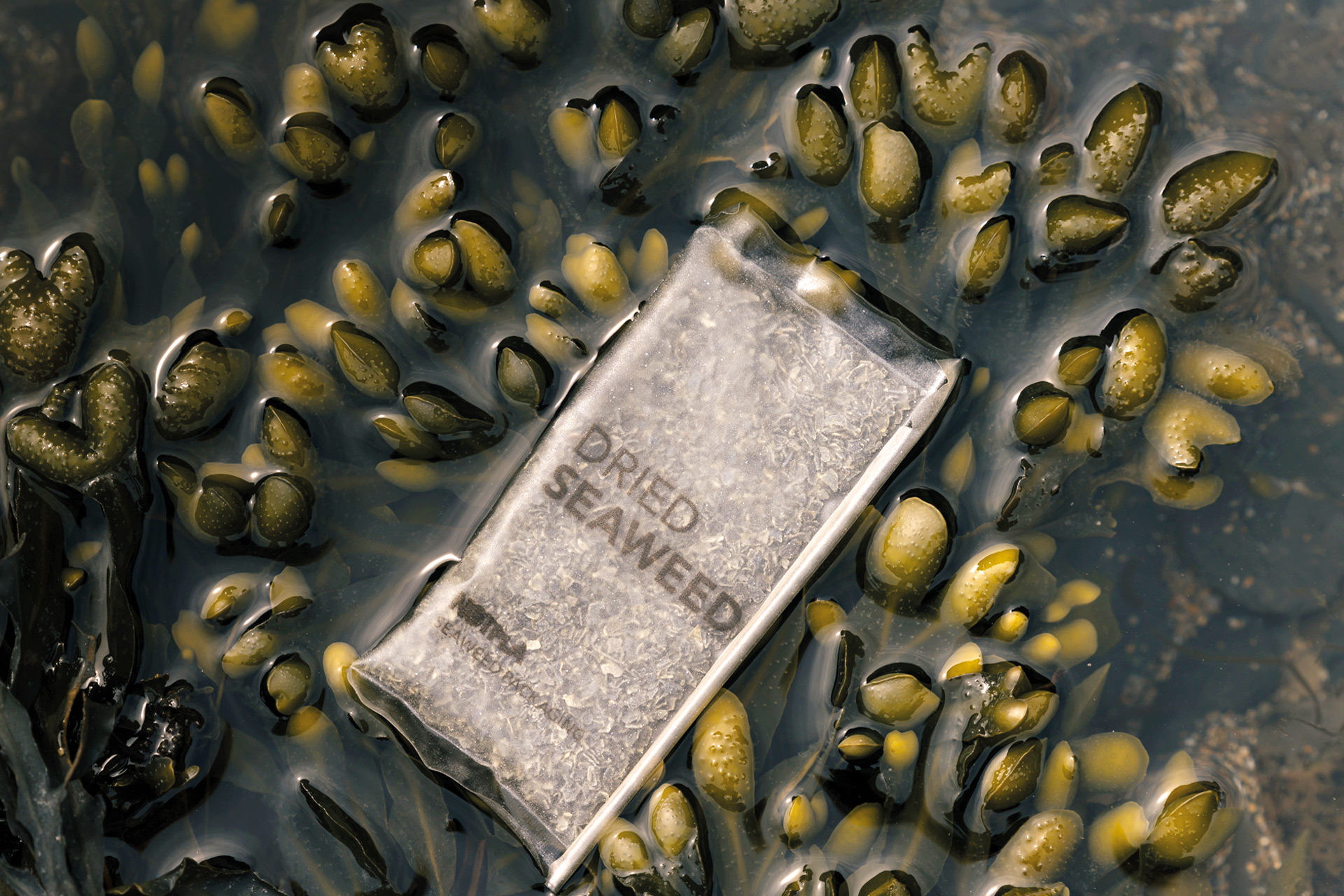
Image credit: Sam Scales
In 2013, they made their first ‘seaweed skin’ prototypes in Rodrigo’s kitchen: creating 100 percent edible, safe and waste-free ‘bubbles’ that could contain liquid. And in 2017, they launched their first product, ‘Ooho’ – a seaweed pouch that’s been filled with Glenlivet cocktails at London Design Week and Lucozade during the London Marathon. Their second product, an alternative to plastic film, now lines Just Eat takeaway boxes in the UK and eight EU countries. When Europe bans the use of single-use plastic from October, they hope big brands such as M&S will swap their plastic film with biodegradable alternatives.
Some of the funding for their research will come from their share of the $1.2 million Tom Ford Plastic Innovation Prize, awarded in March at the Green Carpet Fashion Awards. Ford created the prize because, he said, like Paslier, he could no longer stand by and create products that were polluting the world. Notpla also won Prince William’s prestigious £1m Earthshot Prize last year.
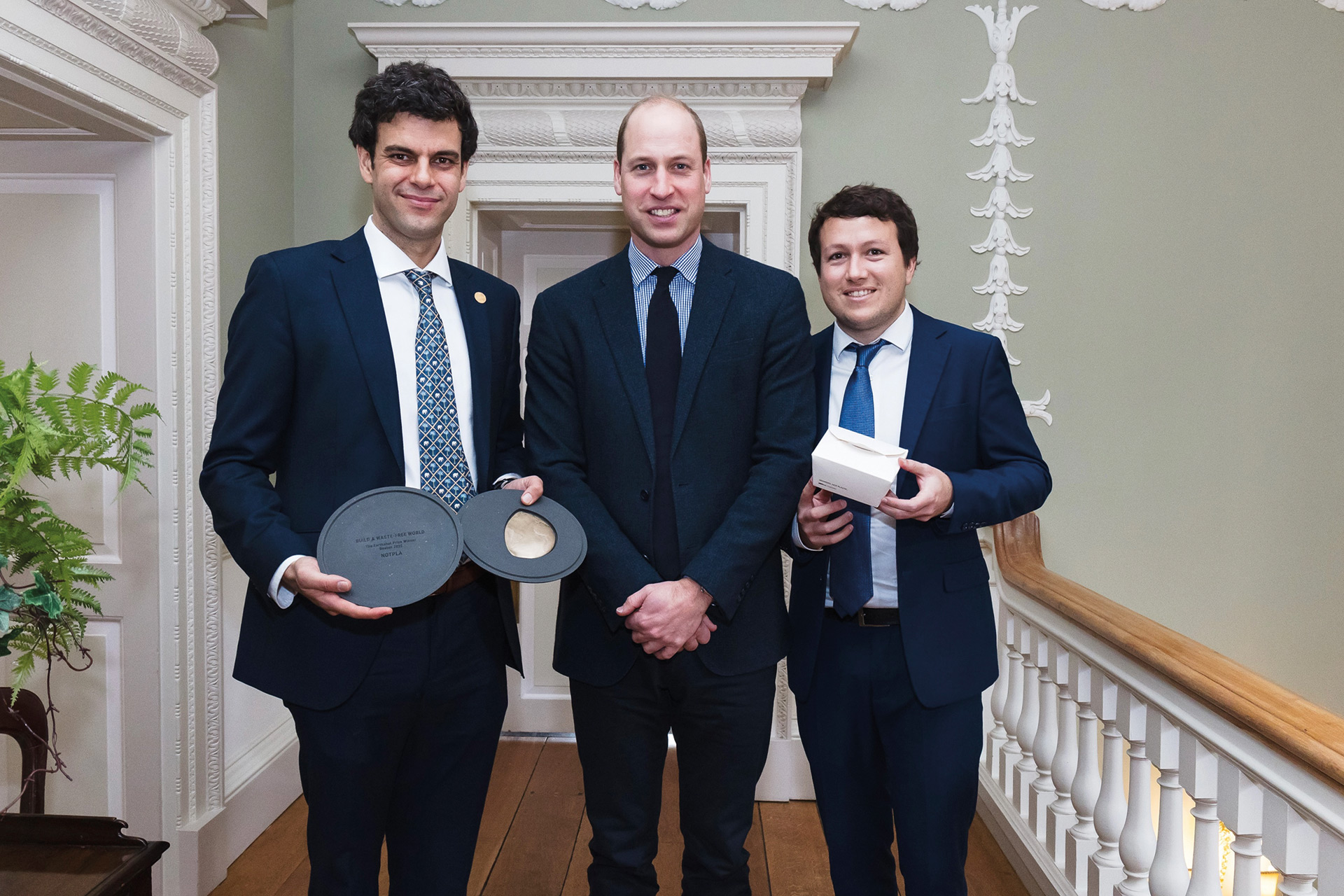
Founders Pierre Paslier and Rodrigo García González with Prince William
The joy of seaweed, the founders say, is that unlike land crops, it does not compete with food supplies and requires no fresh water or fertilisers to grow. It also grows in abundance; the UK alone has over 600 species. And it grows up to 60 times faster than land-based crops, and can sequester up to 20 times more carbon per acre than forests. And that means, they say, ‘the industry is growing incredibly quickly, helping renew our coastal economies and revitalise our ecosystems.’
Even better, seaweed innovators like Notpla – along with other Tom Ford Prizewinners Sway, based in the US, and ZeroCircle, based in India – are working together because they all recognise the importance of ridding the world of petrochemical-based polluters. ‘We’re looking at a similar problem through the lens of different continents,’ the founders tell me. ‘With over 12,000 species, seaweed is an incredibly diverse resource. Just like there are many different types of papers, we believe we need different types of seaweed film if we want to tackle the plastic challenge.’
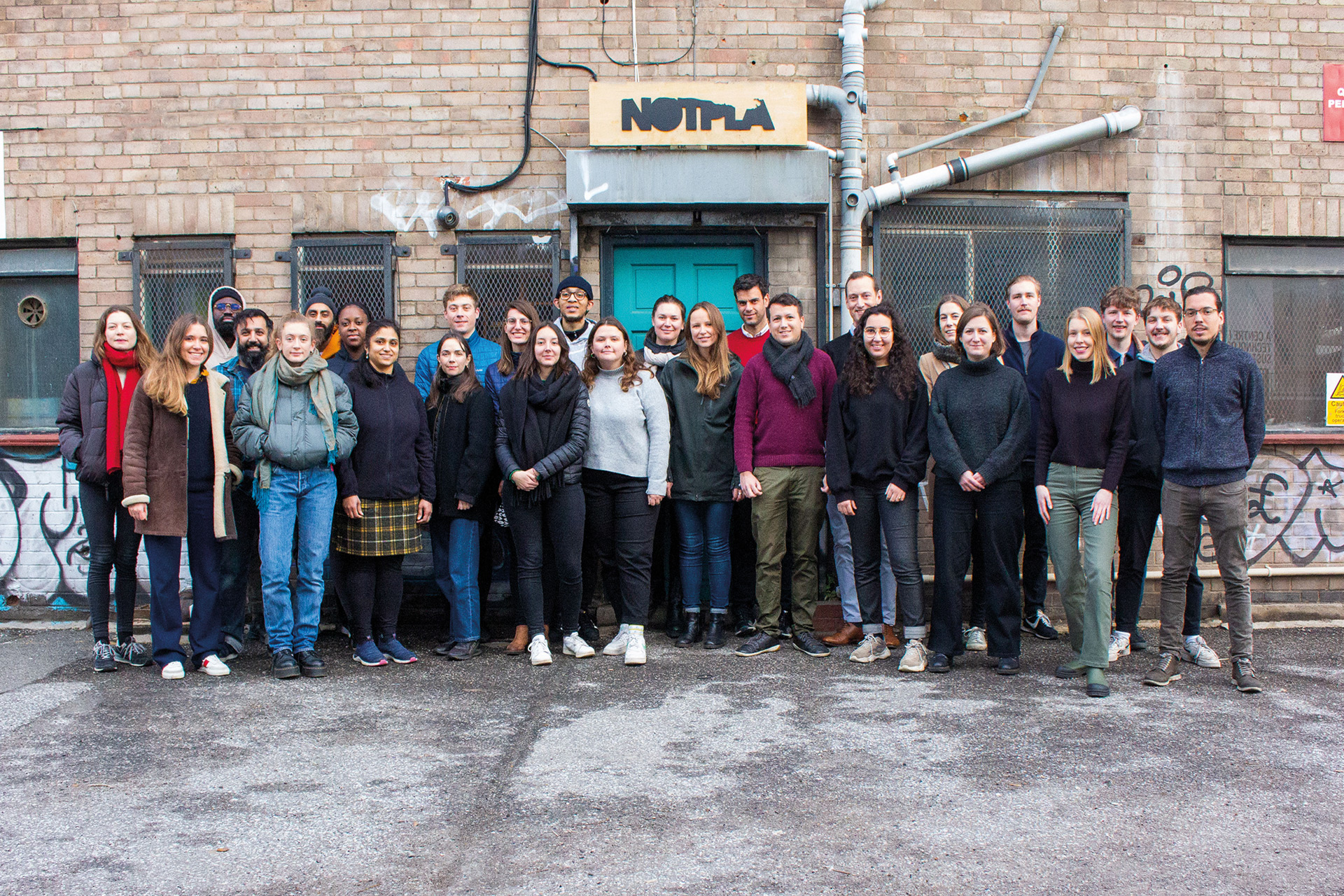
Image credit: Notpla
Currently, the company uses a Welsh supplier, Câr-y-Môr, to supply its seaweed. But as the industry increases, there will be more alternatives. A report into the industry in Europe, titled Hidden Champion of the Ocean, estimates that the seaweed market in Europe could be worth €9 billion and deliver 115,000 jobs by 2030. Norway, among other countries, already harvests up to 169,000 tonnes a year. So next time you go for a swim and are tickled by seaweed, be thankful. That slimy underwater plant is not just sucking up our excess carbon but could soon also be safely packaging what we eat, drink and wear.





